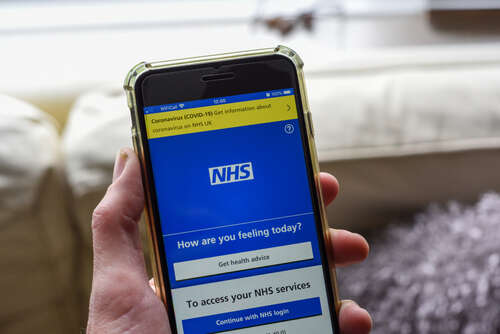
NHS digitisation efforts have suffered from “inadequate funding” leading to slow progress, an expert panel tasked with reviewing the efforts discovered. Despite policy commitments from successive ministers the efforts have been hit by a catalogue of missed opportunities, a report for the Commons Health and Care select committee revealed.

The report by the select committee is based on the promises made in a Department of Health and Social Care paper published last year that emphasised the need for digitisation across both health and social care. The paper said this was essential to deliver the promise of “vastly improved and more integrated health and social care services”.
There have been multiple commitments made after the digitisation of health care was deemed essential to delivering improvements for patients. A panel has been evaluating the policy promises, the work delivered so far and what hasn’t been achieved. This includes the delivery of integrated health and care records, the NHS app rollout and digital skills training for all staff.
The panel found there had been some progress but overall key commitments, particularly around the use of patient data and workforce training had not been met or are unlikely to be met without changes. Overall progress was found to be too slow and lacking support and social care was often completely ignored.
One of the conclusions of the report suggests that without an effective workforce strategy, that is designed to recruit and retain sufficient specialised digital staff, as well as train existing staff on the required digital skills, then the efforts to digitise the health service will fail.
Overall the panel graded the NHS digitisation progress “inadequate” across all commitments made by the government that were within the scope of the review. This included goals to have 68% of adults registered for the NHS app by March this year, rolling out integrated health and care records, investing in health datasets and streamlining contracting methods to leverage NHS buying power. While they rated the progress of NHS app sign-ups as “good” others did not perform so well.
Progress inadequate or needs improvement
Progress against four of the nine commitments the panel measured, in areas vital to the aim of digitising the health and care system, were rated as inadequate. This included delivering an integrated health and care record for all patients, ensuring public and professional support for the use of GP data for secondary uses and the wider issue of digital literacy.
The other five commitments were rated as “requires improvement”, according to the panel. This includes further rollout of the NHS app to include digital home monitoring, use of patient data for research and planning and improving the purchase of digital technologies.
There were several trends the panel found across all areas of the NHS digitisation process that led to the poor rating, including a lack of interoperability progress, a lack of digital maturity of some providers and insufficient planning around the accessibility of digital products.
Like many digitisation efforts, the lack of skilled staff also proved to be a problem for the NHS. “A shortage of staff, both in numbers but mainly with the relevant technical skills, to deliver digital services and to benefit patients and people in receipt of social care,” was a problem the panel declared.
Professor Dame Jane Dacre, chair of the expert panel, said: “What is particularly disappointing is that the Government recognises that the digitisation of the NHS is essential to bring about real benefits to patients, for example by helping them to monitor and manage long-term health conditions independently. Yet time and again, promises have been made but not delivered, hampering wider progress.”
She said there were issues with delays and problems in terms of confirming rights and security of data. “We heard about issues with interoperability between systems and providers, making it difficult for all parts of the system to communicate effectively, leading to delays and efficiency losses. The aspirations to transform the NHS, supported by the right digital foundations, are to be applauded, however, our report finds evidence mainly of opportunities missed.”






